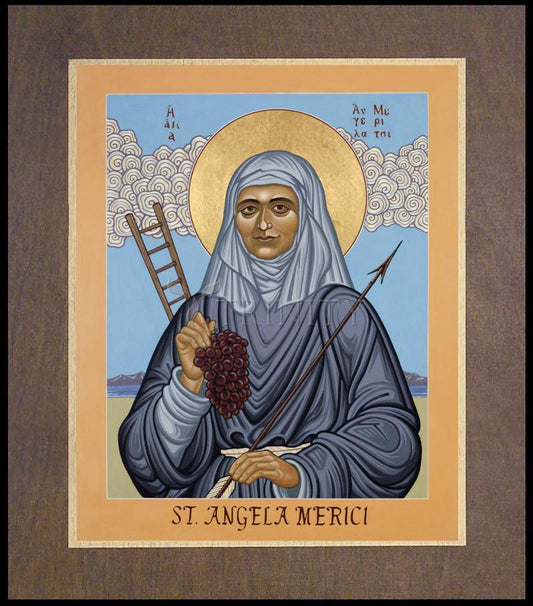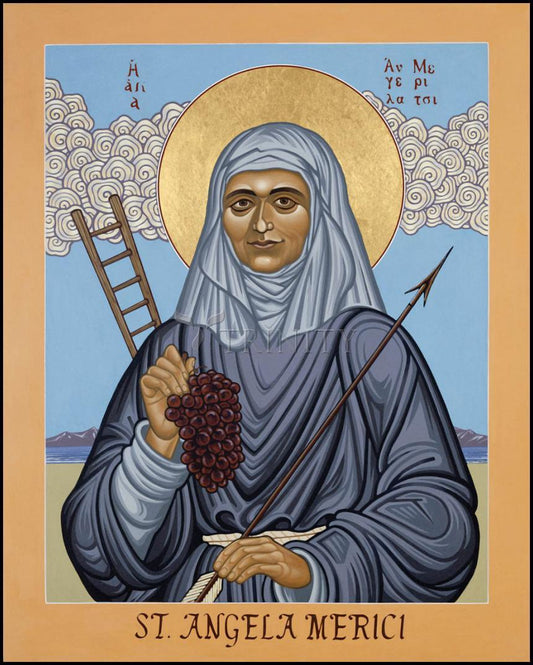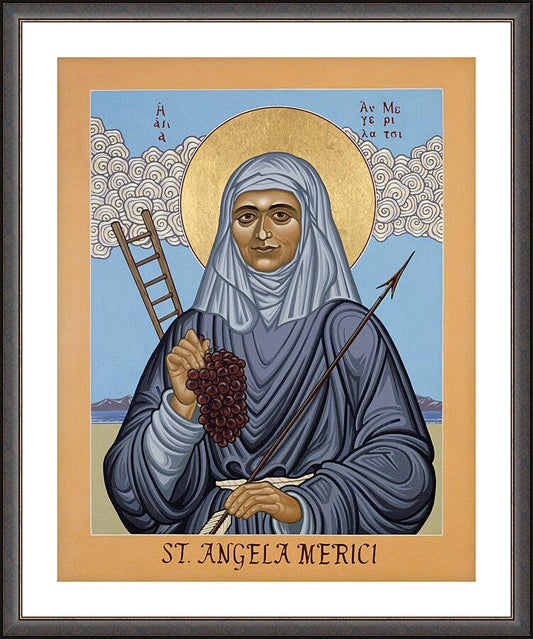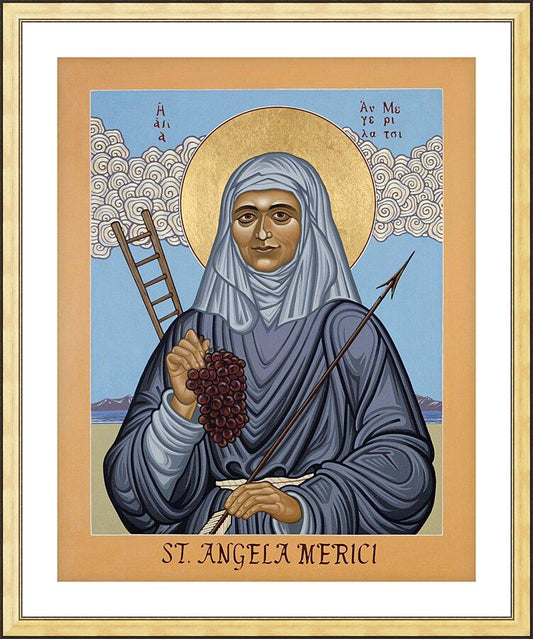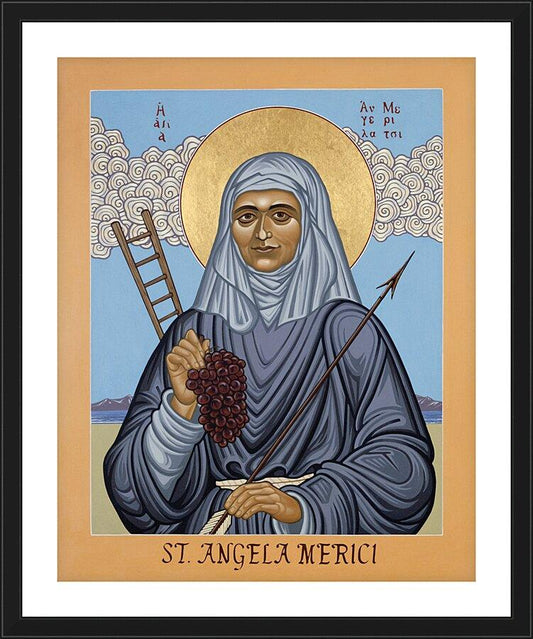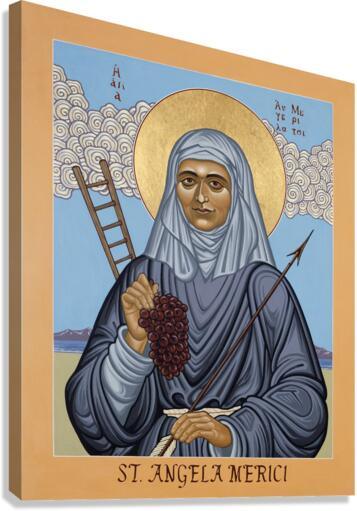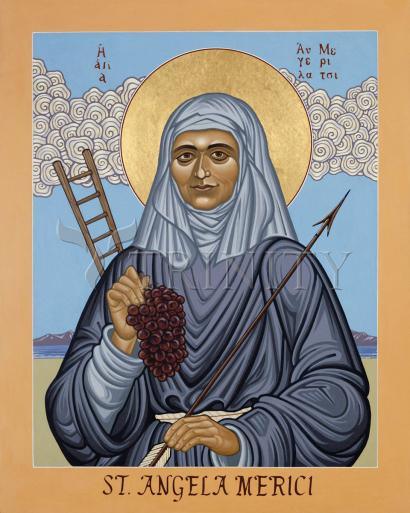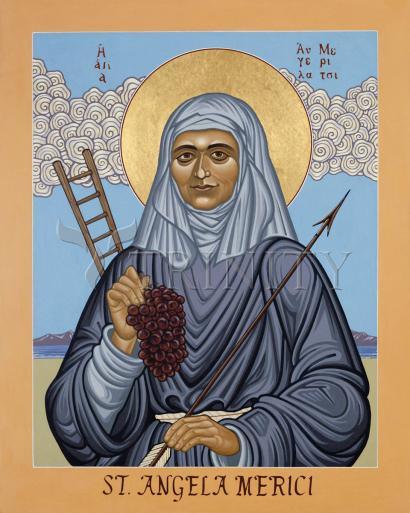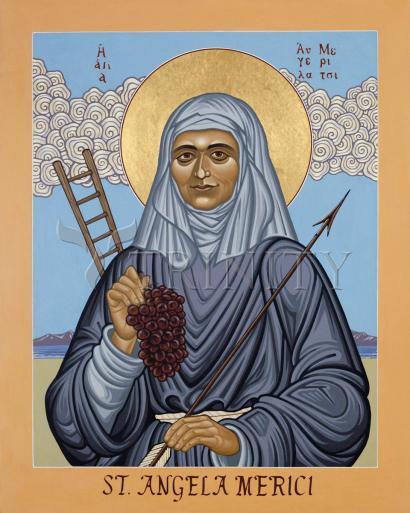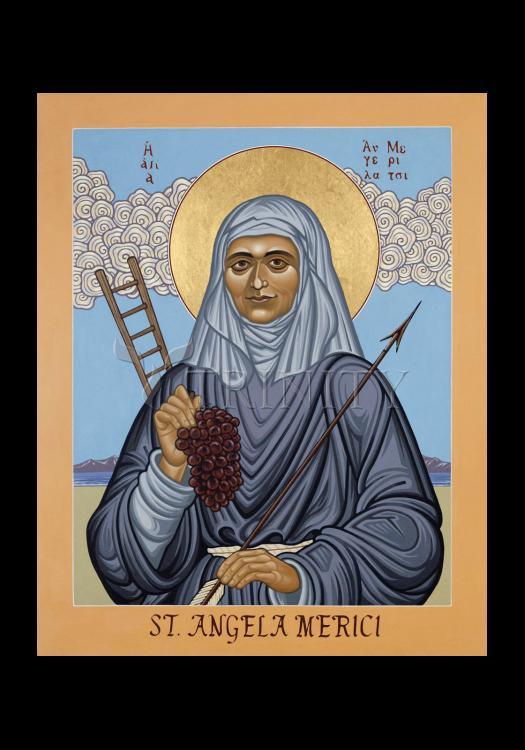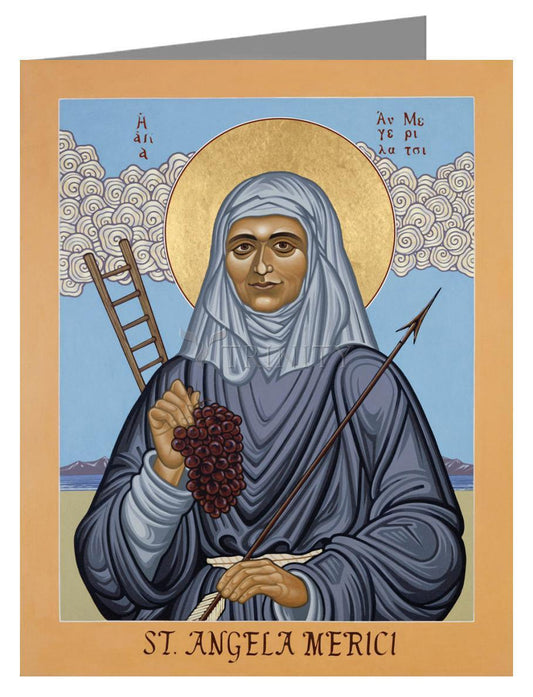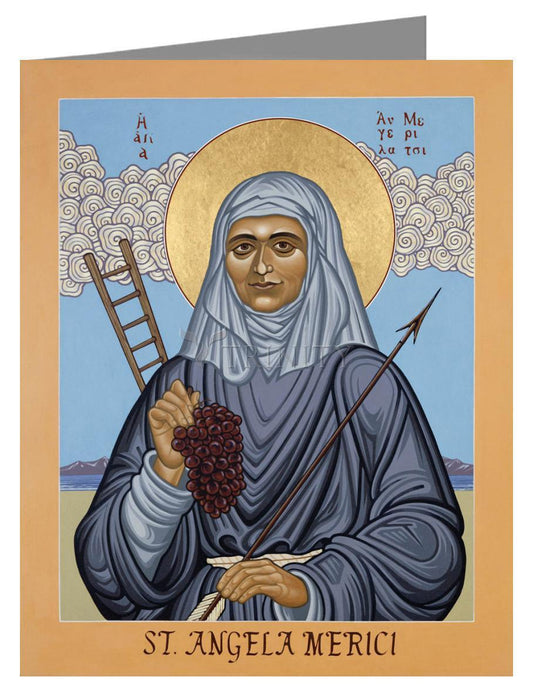Angela was a Franciscan tertiary at age 15. She received a vision telling her she would inspire devout women in their vocation.
In Crete, during a pilgrimage to the Holy Land, she was struck blind. Her friends wanted to return home, but she insisted on going on, visiting the shrines with as much devotion and enthusiasm as if she had her sight. On the way home, while praying before a crucifix, her sight was restored at the same place where it had been lost.
In 1535 she gathered a group of girl students and began what would become the Institute of Saint Ursula (the Ursuline Sisters), founded to teach children, beginning with religion and later expanding into secular topics; her first schools were in Desenazno and Brescia.
Born: March 21, 1474 at Desenzano, Lake Garda, Italy
Died: January 24, 1540 at Brescia, Italy; relics in the church of Saint Afra, Brescia, Italy; body incorrupt.
Beatified: 1768 by Pope Clement XIII
Canonized: 1807 by Pope Pius VII
Name Meaning: angel; messenger (=Angela)
Readings:
Disorder in society is the result of disorder in the family.
"Saint Angela Merici
We must give alms. Charity wins souls and draws them to virtue.
"Saint Angela Merici
As our Savior says: "A good tree is not able to produce bad fruit."
He says: A good tree, that is, a good heart as well as a soul on fire with charity, can do nothing but good and holy works. For this reason Saint Augustine said: "Love, and do what you will," namely, possess love and charity and then do what you will. It is as if he had said: Charity is not able to sin.
Mothers of children, even if they have a thousand, carry each and every one fixed in their hearts, and because of the strength of their love they do not forget any of them. In fact, it seems that the more children they have the more their love and care for each one is increased.
Be sincerely kind to every one according to the words of our Lord: "Learn of me, for I am meek and humble of heart." Thus you are imitating God, of whom it is said: "He has disposed all things pleasantly." And again Jesus said: "My yoke is easy and my burden light."
"Excerpts from Spiritual Testament by Saint Angela Merici
If according to times and needs you should be obliged to make fresh rules and change current things, do it with prudence and good advice.
"Saint Angela Merici



